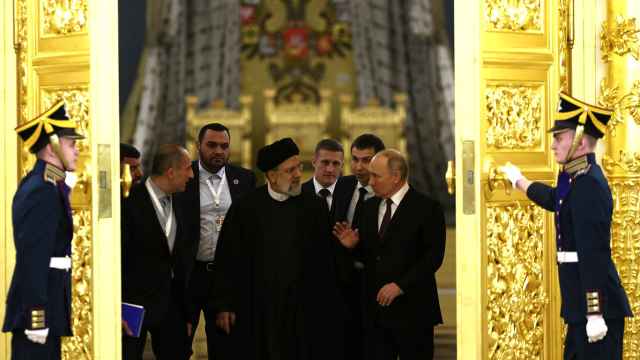Макбет: Macbeth
If you can believe it, I had been been working on a continuation of my serious, scholarly study of traditional Russian pet names — such an important, under-researched topic — when I got sidetracked by the extraordinary news that “По словам премьер-министра Лиз Трасс, 73-летний принц Уэльский Чарльз возьмет имя Карл III" (In the words of Prime Minister Liz Truss, the 73-year-old Charles, Prince of Wales took the name Carl III.)
Because I remain inexplicably trusting of the written word and am always ready to believe that I don’t know something, I immediately looked for the prime minister’s announcement and listened to it. Nope, she did not say that Charles had taken the name Carl. He chose to keep his name Charles, and so Charles, Prince of Wales became King Charles III.
So why in Russian did принц Уэльский Чарльз become Король Карл III?
Thanks to the wonders of social media, I found one part of the answer. Maybe.
The story goes that when the rulers of Muscovy began dealings with foreign kings and queens, they found themselves dealing with, say, kings who had various versions of the Latin name Carolus. There was Carl, Charles (French and English versions), Carlos, Carlo and probably a few more I’m missing.
And here is the first mystery. For some reason the Russian rulers decided that since all these names were really one name — Carolus — they should all be called by one name. I’d have guessed they’d all be Carolus but no — they decided to call them all Карл, the German version of the name.
But then, the second mystery: Since they were calling some foreign rulers by one German name, the tsars and their retinues decided to expand this practice and use German names for other foreign monarchs.
But… hold on. Russians don’t always use German versions of names for foreign kings and queens. Sometimes they do. Sometimes they use Russian versions. Or sometimes they transliterate names. Maybe there is a difference between names of kings and queens the Russian royalty had personal contact with and the names they learned about later? I don’t know.
Here’s what I discovered in a quick search.
Let’s look at royalty in what is now the U.K. In Russian, the King Georges are all the German Георг (not Георгий); the various Williams are Вильгельм; the previous Charles are Карл; and the Edwards are Эдуард.
But that ends the German run. Richard is Ричард: James is Яков: and John is Иоанн. Anne is Анна; Victoria is Виктория: Elizabeth is Елизавета; and Mary is Мария.
Scotland was ruled by Роберт (Robert); Давид (David); Дункан (Duncan). But it was also ruled by Александр (Alasdair) and Яков (James).
I’m not seeing a hard-and-fast rule here.
With French dynasties they seem to transliterate the early ones. But Charlamagne, aka Carolus Magnus, is Карл Великий (Carl the Great). Then there is a spate of Germanized French rulers: Henri —Генрих, Louis — Людовик, Charles — Карл. But why be consistent? Jean is the Russian Иоанн and François is Франциск, which seems to be the Russian version of all the various Francis-Francisco-François men’s names.
Spanish dynasties are also a mish-mash of Russification, Germanizing and transliterating: Isabel is Изабелла; Fernando is Фердинанд; and Juana is Хуана. Felipe becomes Филипп but each early Carlos is Карл. By this logic you’d think that Luis would be Людовик, but no, he’s Луис. And in the 20th century Juan Carlos is Хуан Карлос.
American presidents are a different story. Their names are always transliterated, except, of course, when they aren’t.
Джон Адамс (John Adams) and Томас Джефферсон (Thomas Jefferson) are easy. Russians don’t have “w,” an English “h” or a hard “g” (see above: Джон and Джефферсон), so George Washington is Джордж Вашингтон and Herbert Hoover is Герберт Гувер. Lately there seems to be a slight tendency to transliterate more by pronunciation than spelling, so another founding father, Alexander Hamilton, used to be Александр Гамильтон but is now sometimes Александр Хэмилтон, and Warren Harding is Уоррен Гардинг.
But since “consistency is the hobgoblin of little minds,” Abraham Lincoln is half-Russified as Авраам Линкольн. And Ulysses S. Grant is also half Russian — or half Greek hero, Russian-style: Улисс Грант.
So, to summarize: In Russian over the centuries there have been different ways to render foreign monarchs' names in Russian, from Russification, Germanization, translation, and transliteration by spelling and by pronunciation.
And that’s perfectly normal. Languages change constantly. Schools of thought rise and fall. Dynasties, political systems, international alliances and stylistic preferences come and go.
If you like the tradition of English Carls, if you think Король Чарльз looks weird, if you think the new British monarch just doesn’t look like a Charlie, or whatever — that’s fine.
What isn’t fine by me is insisting that Чарльз — a name that Russians can easily pronounce and that they are used to — must become Карл because Russians always use German names for English kings. As we see, Russians don’t do anything of the sort.






